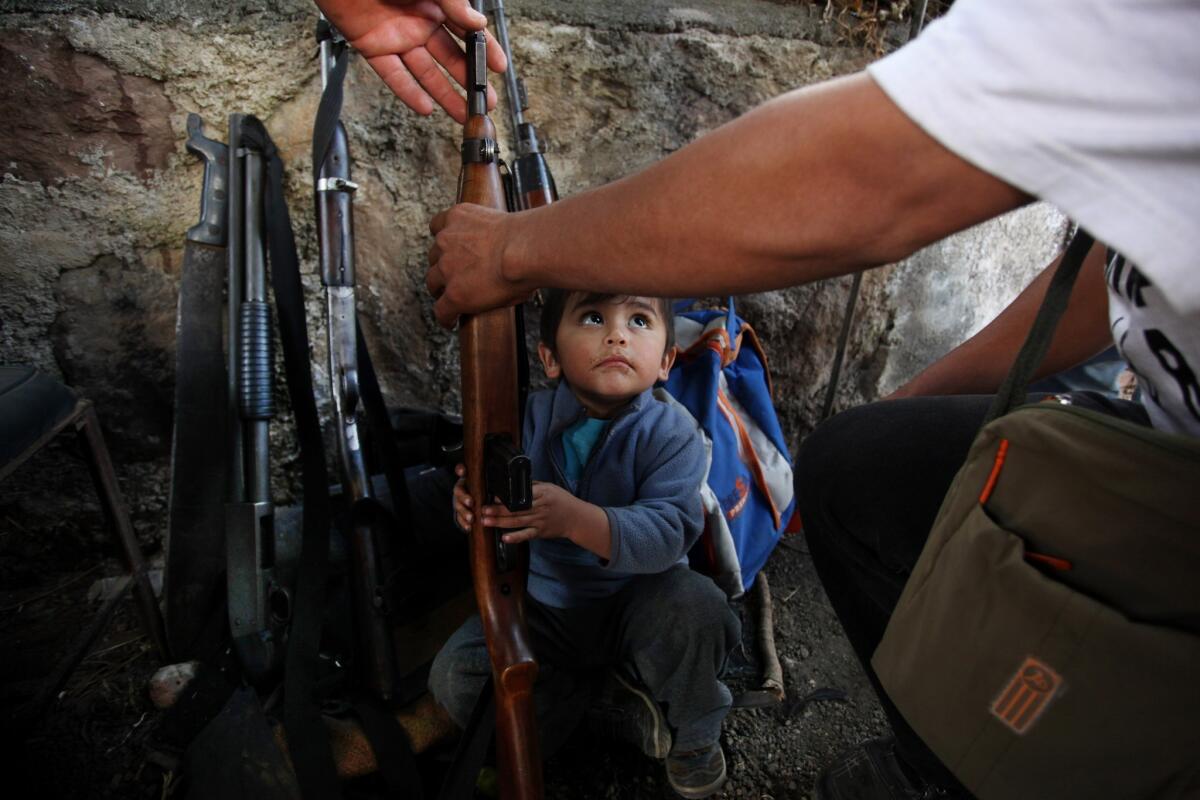Mexico announces anti-kidnapping plan

- Share via
MEXICO CITY – The government of Mexico President Enrique Peña Nieto promised Tuesday to pay new attention to kidnapping, a crime that has increased substantially during the president’s 13 months in office.
The administration rolled out a new anti-kidnapping plan that calls for greater coordination and data sharing among federal and local officials, an oversight panel and an anti-kidnapping czar.
During a ceremony Tuesday, Isabel Miranda de Wallace, head of the citizen group Stop Kidnapping and a member of the new oversight panel, said the plan represented an opportunity to “change history and the direction of our country, [and] to show that the spirit of pessimism can be reversed.”
Government statistics showed 1,695 kidnappings in 2013, the first full year of Peña Nieto’s term — an increase of more than 20% compared to 2012. This week, Miranda de Wallace accused the government of under-reporting the figures for 2013, saying that citizens groups put the number at 2,754.
Peña Nieto, who took office in December 2012, inherited a bloody struggle against the Mexican drug cartels from his predecessor, Felipe Calderon. Peña Nieto has put much of his effort into an ambitious economic and political reform agenda, and has boasted that crime has decreased under his watch.
The government statistics show a mixed record. While homicides and some other crimes, like violent car thefts, decreased in 2013 compared with the previous year, others, like kidnapping and extortion, were on the rise. Many experts believe that the strategy of capturing the kingpins of drug cartels has created new, smaller criminal groups who have branched out beyond the drug trade.
Without the resources to move big shipments of South American cocaine north to the United States, a smaller crime group may decide to go into the low-overhead businesses of kidnapping or extortion. These are the kinds of crimes that affect the lives of Mexicans who have nothing to do with the drug trade, a potentially huge political problem for Peña Nieto and his Institutional Revolutionary Party, or PRI.
“Kidnapping affects relatively few people, but it affects the ‘right’ people— people who were otherwise relatively insulated from the recent wave of violence that Mexico went through,” said David Shirk, a global fellow at the Wilson Center’s Mexico Institute. “That’s disturbing the power elite, the wealthy, groups that were frankly not so concerned by the drug war, and even saw it as a made-up issue.”
Mexican Interior Minister Miguel Angel Osorio Chong said local anti-kidnapping units would be beefed up with new technology and be subject to new eval¿uations to determine their effectiveness. Some of the most prominent citizen leaders of Mexico’s non-government anti-crime groups have been named to the panel, which will be able to make policy recommendations to the new czar, Renato Sales Heredia, a respected federal prosecutor.
Shirk said the long-term solution to the kidnapping problem will come when Mexico finds a way to build more trustworthy police forces. In many areas of Mexico, police are considered either too incompetent to solve a crime — and thus not worth notifying — or to be in bed with the local crime groups.
“You have unprofessional and unaccountable law enforcement and judicial sectors in Mexico,” he said. “That’s’ the bottom line.”
Twitter: @RichardFausset
Cecilia Sanchez of the Times’ Mexico City bureau contributed to this report.
More to Read
Sign up for Essential California
The most important California stories and recommendations in your inbox every morning.
You may occasionally receive promotional content from the Los Angeles Times.













